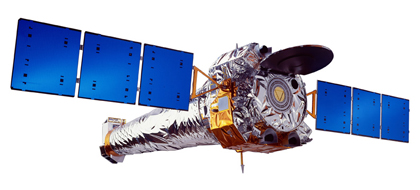A Different Kind of Peer Pressure
Last month, over one hundred astronomers met for several days of marathon sessions in a Boston-area hotel. The purpose of this intense gathering, which takes a lot of work for the Chandra X-ray Center to organize, was to decide what Chandra will observe in the upcoming year. This process, called "peer review," is the engine that drives the science that Chandra discovers.

Like many space-based telescopes, Chandra is a tax-funded observatory (through NASA). And so, any scientist around the world is allowed to propose for observing time. In these proposals, the scientists have to explain and justify why it's worth the telescope's busy schedule to look at a particular target.
These proposals are quite a bit of work. While the scientists don't know what they will see if they get the observing time – that's what science is all about after all! – they still need to do as much research as possible to convince a panel of their peers that their project is worth it.
And, that's where the term "peer review" comes in. Proposals are divided up into topics, such as black holes, supernova remnants, etc., and then eight to ten astronomers who are expert in those fields are assigned to these panels. For those on the panels, this is, once again, a great deal of work. They must each read dozens of proposals and must know some in great detail.
This year, there were over 668 proposals, 13 separate panels, and over one hundred reviewers. The results aren't out yet – the goal is to have that information available around July 17 – and it will take many months before the observations are made and the analysis on the data is done.
So maybe take a second the next time you read about the latest and greatest space result. While it might seem like a simple thing to point a telescope to study the cosmos, it is actually a very labor and time-intensive process that takes the hard work of many, many people. Their efforts, however, allow new glimpses into the understanding of the Universe that we all get to share.
For more information on the Chandra peer review process, see a Chandra Chronicles article circa 2003: https://chandra.harvard.edu/chronicle/0103/peer_review/
-Megan Watzke, CXC
